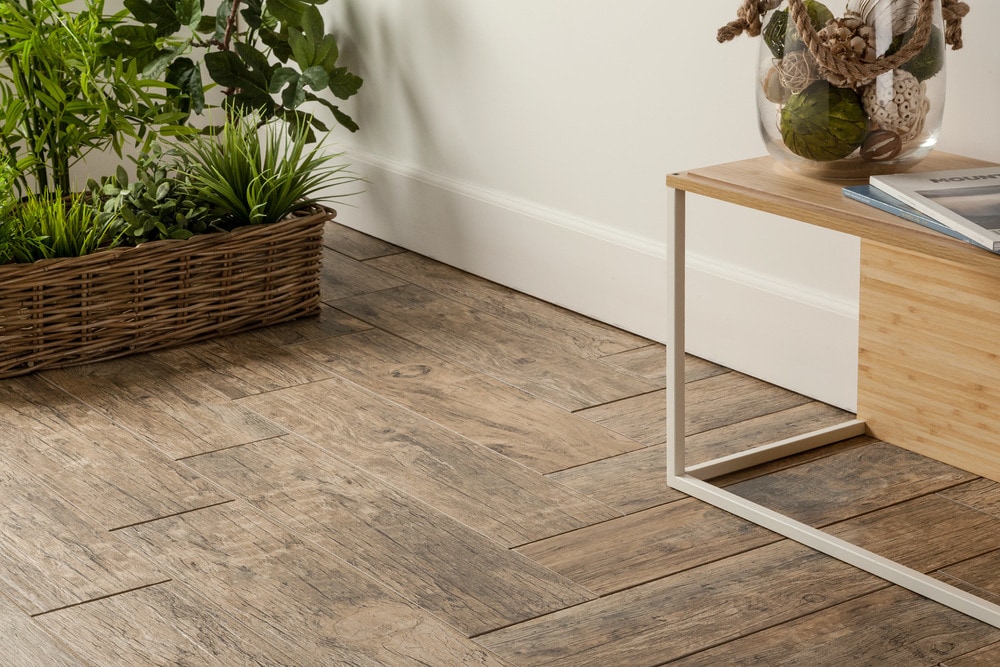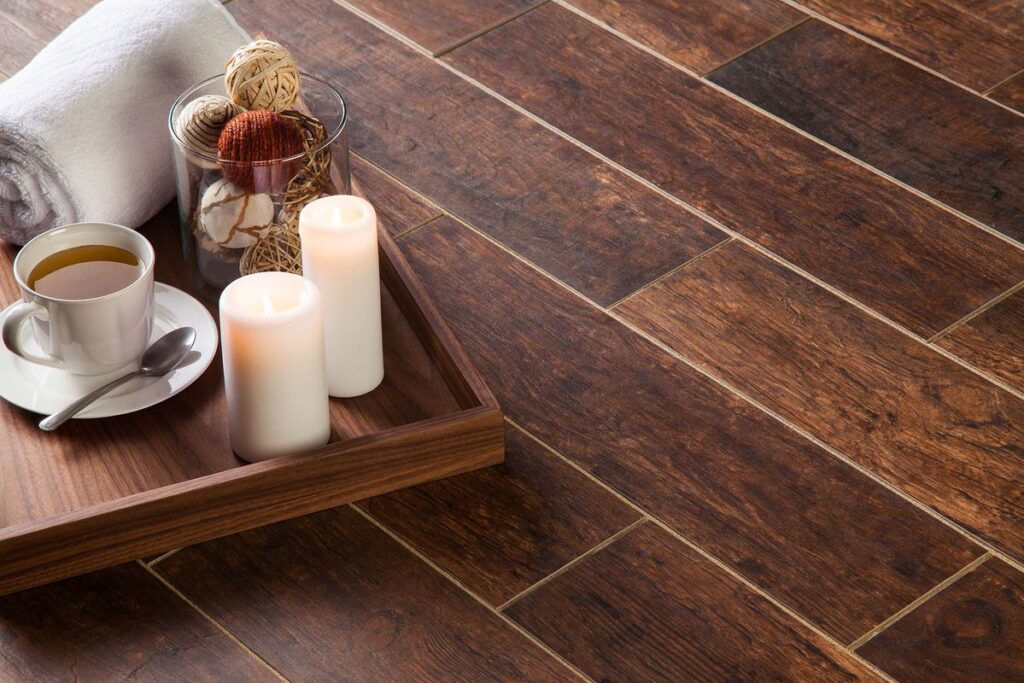How to Remove Dried Grout from Porcelain Tile

Grout is a cement applied between tiles to fill the gaps and keep porcelain tiles in place. Applying grout can be messy and leftover grout on the surface of the tile or baseboards can make a tiling job look unprofessional. Wet grout is easy to wipe away with a damp sponge but because it is comprised mainly of cement, it can be very difficult to fully remove dried grout from porcelain tile. Fortunately, there are a few methods that can help to remove even the most stubborn dried-on grout from tiles without damaging the finish of the tile.
Sugar & Water Method
Tools Needed
- 1 Gallon Hot Water
- 1 Cup Sugar
- Towel
- Bucket
- Wood Stick
- Nylon Scouring Pad
Step 1:
In a bucket, mix a gallon of hot water with a cup of granulated sugar, mixing the two until the sugar dissolves in the water.
Step 2:
Take the water and sugar mixture and pour it over the grout that needs removed. Make sure to apply enough water that it can soak into the grout for an hour or two before you try to work any of the grout off.
Step 3:
Using a wooden paint stick, gently scrape at the grout, removing the larger chunks from the surface of the tile. Continue this step until you remove all of the larger pieces.
Step 4:
Trade out the wooden paint stick for a nylon scouring pad. Scrub at the remaining grout with a moist pad until removed. If the grout doesn’t appear to budge, apply more sugar to the grout or pad and continue scrubbing. The sugar acts as a gentle abrasive to remove the grout without damaging the surface of the tile.
Step 5:
Rinse the tile and wipe it dry with a towel. Inspect the tile to make sure all the grout is gone. If any grout remains, repeat steps four and five.

Water & Wood Method
Tools Needed
- Water
- Piece of Hardwood (Oak)
- Nylon Scouring Pad
- Towel
Step 1:
Pour water over the grout that needs removed. The water will start to soak into the grout, weakening it and making it easier to remove.
Step 2:
Take a piece of oak (or other hardwood) with a square-cut end and apply medium pressure across the grout. Lift it a little bit at a time until you remove the main clumps of grout from the surface of the tile. If the rough areas are in the grout lines between the tiles, use sandpaper to round the corner of the wood and scrub back and forth within the groove to remove any raised bits and create a smooth finish.
Step 3:
Once you remove the large chunks of grout, wet the remaining grout again and trade out the piece of wood for a wet nylon scouring pad. Use the damp pad to scrub at any remaining fragments of grout. If grout and water build up on the pad, simply rinse the pad in water and return to scrubbing.
Step 4:
Once you remove the grout, rinse the tile with water and wipe it dry with a towel. Inspect the tile to make sure all dried grout is gone. If more remains, repeat steps three and four until the tile is clean.

Additional Ways to Remove Dried Grout from Porcelain
Using Wire Wool
When a wood block or stick and a nylon scouring pad don’t seem like enough to remove the dried-on grout, a piece of wire wool may be a good option. This material is slightly more abrasive and can effectively remove grout. When using wire wool, start with a gentle amount of pressure and gently work your way to harder pressure if needed. Make sure to rinse and inspect the tile regularly to see how much grout is remaining on the surface and to ensure that you aren’t damaging the finish of the tile.
Removing Grout from Vertical Surfaces
If grout is adhered to a baseboard or vertically applied tile, use a wet sponge or sugar-soaked sponge against the vertical surface to soak the area.
Epoxy-Based Grouts
If neither of the methods mentioned above removes the grout, it may be an epoxy-based grout and not a cement-based grout. Epoxy-based grouts are impervious to water and will require an epoxy removal product to break it down and remove it from the tile. If this is the case, make sure to read the product instructions and warnings carefully and start by using it in an inconspicuous spot on the floor to ensure it doesn’t damage the finish of the tile.
Handy Tip: Use a Knee Pad & Gloves
Removing dried-on grout is tough work. Make it easier on the knees by kneeling on a pair of knee pads or a cushioned mat. Wearing gloves will keep your hands protected as you scrape away the grout. While these materials are not necessary to complete the job, they can go a long way toward enhancing comfort.
How Not to Remove Dried Grout From Porcelain
It can be tempting to try to chip dried-on grout away with a razor, metal putty knife, or hard object. Do not attempt to remove dried grout on porcelain tile through chipping. Chances are that it will end up damaging or breaking the tile itself. Many people want to know if you can remove grout from a tile with vinegar. Vinegar and other acidic products are not recommended. Acidic products easily damage many types of tile finishes.
Removing dried-on grout is possible, but requires quite a bit of effort. When installing new tiles, make sure to clean up the grout as well as possible before it has a chance to fully set. It can take many days for grout to fully cure, so there is plenty of time to wipe it away before it has become fully hardened. Fortunately, a few materials commonly found around the home are all that is needed to weaken and remove cement-based grout from tiles and baseboards. Try both methods mentioned above to discover your favorite. Once the grout looks smooth and clean, move on to sealing the grout to complete the porcelain tile installation process.
